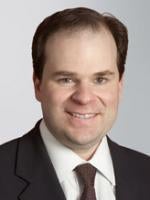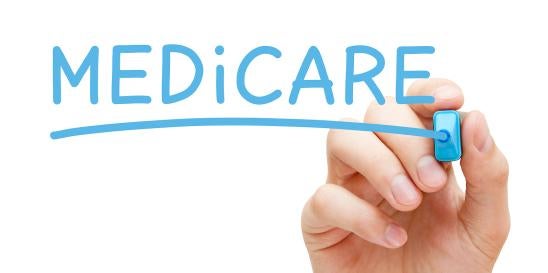This year’s Health and Mental Hygiene Bill (“HMH Bill”) (part of the Governor’s FY 2025 Executive Budget, which proposes a $233 billion balanced budget), includes $35.5 billion to fund Medicaid, $4.8 billion to address serious mental illness and $6 billion in federal funding through the 1115 Waiver.
In addition to those provisions that look to extend current government programs, the HMH Bill proposes the following new initiatives:
Provider Specific Provisions:
- Transforming Safety Net Hospitals. In addition to the 1115 Waiver, which funds the Medicaid Hospital Global Budget for financially distressed safety net hospitals transitioning from volume-based reimbursement models to value-based models, the HMH Bill would also establish the Healthcare Safety Net Transformation Program (“HSNT Program”). The HSNT Program would authorize the issuance of grant funds to safety net hospitals. To encourage sustainable partnerships, safety net hospitals could apply jointly with partnering organizations, including health systems, plans, physician groups and other health care facilities. Grants would be awarded to projects that improve access, equity, quality, outcomes and the financial sustainability of safety net hospitals. Program participants could also receive regulatory waivers to fast-track project implementation.
- Expanding home care collaborations. The HMH Bill would expand the types of providers that can participate in home care collaborations to include Article 40 hospice and Article 30 emergency medical services, in addition to the existing Article 28 hospitals and Article 36 home care agencies.
- Allowing general hospitals to provide care in a patient’s home. The HMH Bill would allow Article 28 general hospitals to provide home health care services without an Article 36 license, provided that a majority of the hospital’s patient care hours are conducted within the hospital and the patient has a preexisting clinical relationship with the general hospital. The HMH Bill would also allow general hospitals to provide at-home medical care besides home health care (including primary, acute and preventative wellness care), provided that such care is provided by an appropriate health care professional to a patient who has a pre-existing clinical relationship with the hospital or provider, and who is unable to leave their residence without unreasonable difficulty. The Department of Health (“DOH”) would establish Medicaid reimbursement rates for such off-site services.
- Expanding remote care through integrated paramedicine programs. Recognizing the diverse needs and scenarios in which emergency services operate, the HMH Bill aims to expand care in rural areas and reduce preventable emergency department visits by expanding paramedicine. First, it would allow any organization authorized to provide advanced life support services to operate a paramedic urgent care program. Under the paramedic urgent care program, advanced EMTs and other health personnel could deliver low-acuity urgent care services remotely, in coordination with a licensed telehealth provider. Such Program applicants would need to be integrated with a hospital or other appropriate healthcare organization. And, second, the HMH Bill would extend for 7 years the community paramedicine demonstration program, established during the COVID-19 pandemic, and authorize nurse practitioners (“NPs”) and licensed physicians to prescribe non-patient specific standing orders for vaccinations by emergency medical services practitioners. This program would establish rules for essential medical emergency response services and encourage innovation in medical care provided by emergency medical services practitioners.
- Bolstering hospital cybersecurity. Building upon last year’s $500 million investment in cybersecurity upgrades for hospitals and health plans and the new draft cybersecurity regulations announced in November, the Governor proposes establishing the Hospital Cybersecurity Roundtable. The Roundtable will be a forum for sharing best practices and helping facilities operationalize critical improvements to protect patient data and avoid interruptions in care caused by the increasing number of cyber-attacks.
- Expanding the scope of practice for non-physician providers and dentists. Also aimed at addressing health care workforce shortages, the HMH Bill proposes to:
- Extend for another two years the Nurse Practitioner Modernization Act, which expands the scope of practice for NPs with more than 3,600 practice hours so they can practice independently, provided they maintain a collaborative relationship with a physician or hospital and meet certain documentation requirements;
- Authorize qualified certified nurse aides to perform medication-related tasks under the supervision of a registered professional nurse in the residential health care facility setting;
- In outpatient settings, allow certified NPs and licensed physicians assistants to directly supervise medical assistants in performing blood draws and vaccine administration;
- Extend the Collaborative Drug Therapy Management Demonstration Program, which allows qualified pharmacists to adjust a patient’s drug regimen, subject to a written protocol with the treating physician;
- Expand the scope of practice for dental hygienists to handle procedures currently only within the purview of dentists;
- Permit pharmacists to perform COVID-19 and influenza testing and to administer vaccines and preventive medications, including HIV Pre-exposure Prophylaxis without a patient specific order; and
- Allow Direct Support Professionals in certain Office for People with Developmental Disabilities community-based settings, such as a person’s private home or apartment, to perform certain nursing tasks to increase the availability of nursing task services outside of certified residential settings, allowing more people with developmental disabilities to remain in or transition to more independent settings.
- Eliminating medical debt for patients earning < 400% of the Federal Poverty Level (“FPL”). The HMH Bill would prohibit general hospitals from commencing legal action related to the recovery of medical debt or unpaid bills from patients earning less than 400% of the Federal Poverty Level ($120,000 for a family of four). In addition, the Executive Budget would expand hospital financial assistance programs by: (i) defining “underinsureds” and including them for purposes of Indigent Care Pool participation; (ii) increasing the discounts provided by hospitals; (iii) limiting the size of monthly payments and interest charged for medical debt; and (iv) implementing other protections to improve access to financial assistance, including distinguishing patient consent for treatment from consent to pay for such treatment and precluding credit card pre-authorization before treatment or requiring that a credit/bank card be on file before treatment.
- Consumer Directed Personal Assistance Program (“CDPAP”). The HMH Bill would eliminate the requirement for wage parity for personal assistants in CDPAP.
- Changing how Medicaid prices and pays for drugs. First, the HMH Bill would modify coverage for over-the-counter drugs provided by Medicaid and eliminate the prescriber’s ability to override a Medicaid drug determination with respect to what drugs are clinically supported and medically necessary. Second, it would phase out the current Medicaid Pharmacy Drug Cap and allow the State to directly negotiate rebates with manufacturers. Third, the HMH Bill would create a state imposed maximum allowable cost or formulary management for physician administered drugs (the fastest growing pharmacy spending area). Lastly, it would require pharmacies participating in Medicaid to submit cost reports related to procurement and dispensing of prescription drugs, which would be subject to audit.
After failing to gain traction in the legislature last year, Governor Hochul has again proposed to:
- Establish quality standards for assisted living residences. Quality and accreditation data reported to DOH by assisted living facilities would be published online, allowing New Yorkers to make more informed choices.
- Join the Interstate and Nurse Licensure Compacts. Governor Hochul will again advance legislation for New York to enter into the Interstate Medical Licensure Compact and the Nurse Licensure Compact. Joining such compacts would expand access to care by making it easier for practitioners (physicians, registered nurses and licensed practical nurses) to practice in New York, either in-person or via telehealth means.
Mental Health Specific Provisions:
At the top of the Governor’s list of priorities is tackling the mental health crisis. Her FY 2025 strategy involves an additional $814 million in mental health spending to support mental health provider recruitment and retention and other initiatives, including:
- Enforcing mental health care parity. Governor Hochul plans to increase enforcement of state and federal laws that require access and coverage for mental health and substance abuse disorders in accordance with state law and the Paul Wellstone and Pete Domenici Mental Health Parity and Addiction Equity Act of 2008 by doubling fines for commercial insurers who continue to violate such laws. To recruit and retain mental health providers, Governor Hochul proposes requiring commercial plans to pay for outpatient mental health and substance use services performed by Office of Mental Health (“OMH”) or Office of Addiction Services and Supports licensed providers at least at the Medicaid rate. If approved, the budget also includes $120.4 million for additional cost of living adjustments of 1.5% for mental hygiene providers and $57 million for minimum wage increases for their staff.
- Treating mental health as a public safety issue. Another theme of the HMH Bill is preventing crime, incarceration and recidivism, and improving public safety, through investments in mental health care. This year the Governor proposed:
- Spending $55 million to create 200 new inpatient psychiatric beds, including 125 State-operated inpatient psychiatric beds, including 15 for children and adolescents, 85 for adults and 25 forensic; and 75 Transition to Home Unit beds in one State-operated and two community-based facilities.
- Creating a team at the OMH dedicated to connecting “the relatively small number of individuals known to cycle through shelters, hospitals, jails, and prisons” to local mental health providers and resources;
- Codifying October 2023 guidance issued by OMH and DOH advising hospitals that they are required to screen patients with mental health conditions for risk of suicide, violence, substance use and other complex needs, arrange for aftercare for those with complex needs and schedule a follow-up psychiatric appointment within seven days of discharge; and
- Expanding the number of mental health courts and working with the Law Enforcement and Mental Health Coordination Team to connect people to treatment and other services.
- Increasing maternal mental health tools. The HMH Bill looks to expand access to postpartum mental health screenings, create a “warmline” to connect perinatal patients to mental health resources and increase funding for Project TEACH Maternal Mental Health, a state program that provides maternal mental health training to psychiatrists.
- Addressing the youth mental health crisis. With a requested $45 million, the HMH Bill would expand youth peer counseling and establish school-based mental health clinics in any school that wants one. In addition, the Governor will support the Stop Addictive Feeds Exploitation for Kids Act (a/k/a the SAFE for Kids Act), which would restrict addictive features of social media for minors, except with parental consent. Note that, although the HMH Bill provides additional support for Early Intervention providers, if enacted, it would no longer permit certified school psychologists to practice under a temporary exemption as Early Intervention providers or render Early Intervention services.
- Combating the Opioid Crisis. The HMH Bill also aims to strengthen opioid abuse disorder management by increasing Prescription Monitoring Program data retention periods from 5 to 10 years, allowing more data sharing within the state, and aligning the state schedule of controlled substances with federal regulations to allow providers to distribute a 3-day supply of buprenorphine while referral to detox programs is being arranged.
Medicaid Managed Care Provisions:
Finally, Governor Hochul’s proposal would reform Medicaid Managed Care by:
- Creating a state procurement process for all Medicaid Managed Care Organizations (MMCOs), including managed long term care plans;
- Removing the 1% across-the-board administrative rate increase provided to all MMCOs in the FY 2022-2023 budget;
- Excluding the third-party appeal process for Medicaid services, including emergency services, which currently allows providers and patients insured in all lines of business to dispute a claim, after exhausting all internal MMCO appeal processes, to a third-party independent dispute resolution agency;
- Extending the Medicaid Global Cap through FY 2026 (another 2 years) and imposing liquidated damages on MMCOs that fail to meet certain contractual requirements. The Medicaid Global Cap is a statutory mechanism enacted to control Medicaid spending in New York to the five-year rolling average of Medicaid spending projections within the National Health Expenditure Accounts from the Office of the Actuary in the Centers for Medicare and Medicaid Services; and
- Amending the Social Services Law to clarify the Justice Center’s obligation to refer reports of abuse or neglect by Medicaid providers to the Office of the Medicaid Inspector General (OMIG)when such reports are no longer subject to amendment or appeal and could be subject to OMIG sanctions.
The full State of the State book can be downloaded here and an executive summary of the proposed budget is available here. Passage of a final state budget will occur around April 1, after legislative review and negotiation.




 i
i


